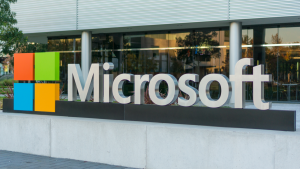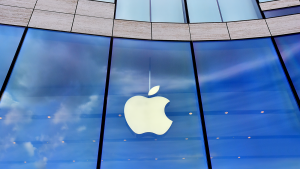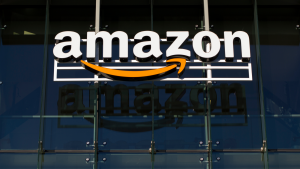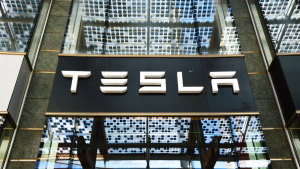With so many vagaries clouding the present market environment, one possible avenue for success is to align your portfolio with your favorite hedge fund stocks. Simultaneously celebrated and vilified, this special brand of institutional investor might give you an edge. Primarily, your favorite hedge fund stocks typically stem from the top experts in the stock-picking game. And these institutions only hire the absolute best analysts and provide them with unparalleled technical resources. Sure, there’s a tendency to dismiss such experts as clowns. However, the reality is that more often than not, they know what they’re doing.
Second, investors may find comfort in the safety of numbers. It’s one thing when one institutional investor places a heavy wager. It’s quite another when several of them make the same bet. Therefore, aligning with your favorite hedge fund stocks might improve your odds. Below are some of the most targeted plays – and whether you should get involved or not.
| MSFT | Microsoft | $254.77 |
| AAPL | Apple | $149.40 |
| AMZN | Amazon | $95.82 |
| BRK-A | Berkshire Hathaway | $459,375.00 |
| TSLA | Tesla | $202.07 |
| SCHW | Charles Schwab | $78.97 |
| PLD | Prologis | $124.01 |
Microsoft (MSFT)

According to information provided by HedgeFollow.com, Microsoft (NASDAQ:MSFT) ranked second place among favorite hedge fund stocks. Per the website, this category of institutional investor acquired a total of $58.99 billion worth of MSFT since the beginning of the first quarter of 2023. The top three investors are Norges Bank (buying $20.40 billion), Morgan Stanley ($3.46 billion), and BlackRock ($3.12 billion).
Financially, Microsoft arguably represents a no-brainer among popular hedge fund stocks. Per Gurufocus.com’s proprietary calculations for fair market value, MSFT rates as modestly undervalued. On the balance sheet, the company features solid strengths, including an Altman Z-Score of 8.31 (reflecting a very low bankruptcy risk). As well, it features strong growth and outstanding profitability metrics.
Presently, Wall Street analysts peg MSFT as a consensus strong buy. Further, their average price target stands at $291.70, implying 16% upside potential. In the trailing year, MSFT slipped over 10% as the technology sector suffered badly in 2022. However, since the January opener, MSFT gained 5%.
Apple (AAPL)

A stalwart in the consumer tech space, Apple (NASDAQ:AAPL) ranks third among favorite hedge fund stocks per HedgeFollow.com. According to the website, these institutional investors acquired a total of $55.48 billion worth of AAPL stock. The top investor so far in Q1 2023 is Norges Bank at $22.44 billion. Coming in second and third were Morgan Stanley ($3.84 billion) and Barclays ($1.57 billion).
On paper, Apple should be reeling from the pressures impacting the consumer economy. However, its brand remains as powerful as ever. Currently, Gurufocus.com labels AAPL as modestly undervalued based on its proprietary FMV calculations. Not surprisingly, though, the greatest strengths center on its operational dominance.
For instance, Apple’s three-year revenue growth rate stands at 20%, outpacing 85.62% of its competitors. Its net margin pings at 24.56%, beating out 95.52% of rivals. Right now, Wall Street analysts peg AAPL as a consensus strong buy. Further, their average price target stands at $171.94, implying over 15% upside potential.
Amazon (AMZN)

Earning its reputation in the e-commerce space, Amazon (NASDAQ:AMZN) ranks among the favorite hedge fund stocks for its massive footprint. Per HedgeFollow.com, the company comes in fourth place among buy-ins from these institutional investors, which bought $41.62 billion worth. Again, the top investor was Norges Bank, in this case with an exposure of $9.69 billion. Morgan Stanley and JPMorgan Chase rounded out the top three at $2.04 billion and $1.38 billion, respectively.
To be fair, Amazon represents a tricky narrative because of the beating it took in 2022. In the trailing year, shares gave up nearly 34% of equity value. As well, Gurufocus.com warns that AMZN may be a possible value trap. Finally, in the past year, the net margin slipped slightly into negative territory.
On the other hand, Amazon still represents a growth machine. Its three-year revenue growth rate stands at 21.9%, beating out 84.28% of its rivals. Combined with its brand power and myriad relevancies, it should be worth a look. Presently, covering analysts peg AMZN as a consensus strong buy. Their average price target stands at $137.05, implying 43% upside potential.
Berkshire Hathaway (BRK-A)

When it comes to discussing Berkshire Hathaway (NYSE:BRK-A), presumably most publications focus on its Class B shares. Regarding popular hedge fund stocks, however, we’re going to be talking about Class A shares – the one where a single share costs more than the average U.S. home.
Ranking fifth, hedge funds acquired $29.96 billion worth of BRK-A. The top investor was Perigon Wealth Management at $15.51 billion. Next came CI Private Wealth at $6.81 billion and Norges Bank at $2.58 billion. Financially, Gurufocus.com warns its readers that BRK.A may be modestly overvalued. That said, the industrial conglomerate attracts attention because of its wide-reaching wagers.
Plus, it features solid operations. Most notably, its three-year revenue growth rate stands at 19.7%, outpacing 81.3% of its peers. Also, its book growth rate during the same period is 17.3%, beating out 84.3% of the industry. Turning to Wall Street, covering analysts peg BRK-A as a consensus moderate buy. Further, their average price target stands at $542,568, implying nearly 18% upside potential.
Tesla (TSLA)

As things stand now, Tesla (NASDAQ:TSLA) ranks as the top idea among popular hedge fund stocks. These institutional investors bought $60.36 billion worth of TSLA. Further, the top hedge fund was Natixis, buying up $32.35% billion worth of shares. Rounding out the top three were Norges Bank ($5.31 billion) and Susquehanna International Group ($2.17 billion). So, why didn’t I mention Tesla as the top name among popular hedge fund stocks? Mainly, it’s not clear that everyone should acquire TSLA. It really depends on your risk-reward profile.
Objectively, TSLA appears significantly overvalued. At the time of writing, the market prices TSLA at a trailing multiple of 55.44. Also, TSLA trades at a forward multiple of 50.14. Both are overwhelmingly overvalued for the underlying industry. Adding to the pressures, electric vehicles tend to be quite expensive at this juncture. Further, not everyone has access to home charging. Here’s the other thing. Although covering analysts peg TSLA as a consensus moderate buy, their average price target pings at $202.46. That’s less than 1% upside potential. If you believe in it, go for it. However, it might not be for everyone.
Charles Schwab (SCHW)

Another example of popular hedge fund stock that might not be everyone’s cup of tea is Charles Schwab (NYSE:SCHW). Coming in sixth place, hedge funds acquired $23.93 billion worth of the financial services firm. The top investor was Toronto Dominion Bank at $17.47 billion. The second place belongs to Norges Bank ($1.23 billion) and third to Morgan Stanley ($664.26 million).
Overall, SCHW isn’t a bad bet. However, it features confusing fundamentals. On the optimistic front, bear market cycles tend to let the cream rise to the top regarding wealth management businesses. I’ve mentioned this concept several times before. However, it does come with the risk that during down cycles, people tend not to invest. Further, the Federal Reserve poses serious problems. Theoretically, higher interest rates mean greater profitability for financial packages. But it also means fewer incentives to take those packages because of higher borrowing costs. On the Street, analysts peg SCHW as a consensus moderate buy. Further, their average price target stands at $91.05, implying nearly 14% upside potential.
Prologis (PLD)

A real estate investment trust (REIT), Prologis (NYSE:PLD) invests in logistics facilities. Per HedgeFollow.com, Prologis ranks as number 11 among popular hedge fund stocks. Collectively, these institutional investors acquired $18.07 billion worth of PLD stock. Acquiring the most was Vanguard Group at $2.59 billion. Rounding out the top three were BlackRock at $1.72 billion and Cohen & Steers at $1.43 billion.
In any other circumstance, Prologis might be a no-brainer acquisition. And for those that believe in the broader post-pandemic economic recovery, it might still be. However, PLD might not be the most appropriate investor for everyone’s needs.
Setting aside that it appears objectively overvalued at this juncture, Prologis faces concerns associated with the consumer economy. Should the Fed get too aggressive in its bid to control inflation, the logistics facilities business might suffer. So far, though, Wall Street remains optimistic. Presently, covering analysts peg PLD as a consensus strong buy. Also, their average price target stands at $138.71, implying nearly 13% upside potential.
On the date of publication, Josh Enomoto did not have (either directly or indirectly) any positions in the securities mentioned in this article. The opinions expressed in this article are those of the writer, subject to the InvestorPlace.com Publishing Guidelines.
